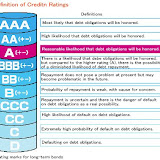Angela Merkel seems to still be on the side of deep European values that are the heritage of this continent’s history. Many were expecting her to have a change of heart on her refugee policy following the latest attacks in Bavaria that could be linked in some way or another to...
Be Deutsch, Fcuk Far...
posted by Jacques René Zammit
Jan Böhmermann hit the international news by offending Turkey’s Erdogan. The Turkish leader had requested that Angela Merkel prosecute Böhmermann under an outdated German law for having dared make fun of him in public. Merkel acquiesced causing widespread indignation among the...
J’accuse : Coo...
posted by Jacques René Zammit
Listening to London’s Heart radio on a Saturday morning, I got to know that for the first time ever the capital’s Oxford and Regent streets would be traffic free for the whole day. The reason for this car-free bonanza was of course shopping. Londoners who forwent the option of visiting...
Legatus non violatur
posted by Jacques René Zammit
The big three credit ratings agencies were threatened yesterday with fines and the creation of a new state-backed competitor, only weeks after European leaders attacked them for exacerbating Greece’s problems with downgrades. – The Times (UK) Readers will be familiar with...




